One thing I didn’t like about daily writing last time around was that it didn’t encourage me to dig past my initial thoughts on something. There is only so much depth to be discovered in a single 15 minute writing session.
This time, I’m going to be compiling my thoughts from the week every Sunday and publishing an annotated + expanded version with (hopefully) more depth. The daily posts are shared on Twitter.
Progress
Regarding progress, the ideas I’m most drawn to are 1) markers of progress and 2) the weird feeling I experience upon reflecting and looking back.
How can we use markers of progress to motivate us to achieve long-term goals? In my original post, the idea I was getting is that we often lose track and lose faith in our processes. The mundanity of life can wear us down and make us forget why we’re doing something or that we’re even doing something at all.
However, markers of progress, and reflecting on those markers, remind us that change not only occurs, but it happens much faster and more intensely than we imagine.
The core feeling that you experience from reflecting on markers is that you no longer recognize part of the person you once were. You might remember what you we’re going through, but the feelings of anxiety/excitement/whatever don’t exist in the same way.
When I look at a photo of my first apartment in NYC from January, I remember the blend of eagerness and fear I had. But compare that to today, I’m different. If I went back, I wouldn’t feel the same. That is change, and if in the right direction, growth.
I’m the kind of person that has trouble putting in effort if I don’t see results. It honestly might be my greatest weakness—either a poor reception to delayed gratification or a lack of faith in myself and my processes. Either way, finding ways to measure and reflect on progress feels like it should help.
So far, all of the markers I’ve talked about measure the macro—the broad strokes of how my life is going. But what about for specific goals? I have trouble achieving the same level of emotional resonance. For example, if I want to read more books, reflecting on how many books I read the previous year or looking back on what books I was reading last year is a fun exercise, but doesn’t make me feel like a different person.
So maybe it’s an issue with the goal. It’s easy to get that weird fuzzy feeling of growth when your goal has a scope as big as your entire fucking life. But when it’s to read 25 books this year instead of 20, it’s less clear that growth is occurring.
One way to get around this is to tie even your small goals to the person you want to be. This is a strategy I learned when contemplating whether to take time off of school. I spent so much time thinking of what I wanted to do with my time off, and not enough time thinking about the kind of person I wanted to be coming out the other end.
So if your goal is to read more, set a number, but also consider how you want to change from reading those books. That might involve picking specific books for specific reasons (I want to read The Art of Gathering to become a social facilitator and host my friends) or writing a reflection on each book you end up reading (this book changed how I think about climate policy).
After all, what use is a goal if the process of achieving it doesn’t change you as a person?
Time off
I initially wrote that I was observing two different types of time off. However, I think they might actually be the same thing. Time off is when your behavior is no longer guided by external obligations. If you have no obligations at all, you might experience that sense of peace I wrote about (time off #1).
But as I wrote, that feeling is no way to live (at least for someone like me). Peace turns into restlessness. And in response, you might begin to create obligations for yourself. The key difference is that these obligations aren’t external—they’re motivated by, set by, and enforced by you.
If I were to put these ideas together into a single actionable piece of advice, it would be that time off is worth taking, whether it be via a gap year or an adult equivalent. We spend most of our lives living through external obligations (school, job, family) that few people get the chance to live out their own.
In order to figure out what matters to you, and how you want to spend your life, you need margin—time away from everything else.
The ideas above come in a variety of shapes and sizes:
Paul Graham has written about the importance of deciding what to work on, discovering what you like, and relentlessly pruning bullshit from your life.
Jake has written and talked about how his gap year in college and career changed his life for the better.
Salad days (and street photography)
This was my favorite concept from the week. I was rereading this essay and one of the comments praised the title (salad days). I’d never head of the phrase before, but I now know it is exactly what I’ve been seeking the past few years of my life.
Not just my lifestyle, but also in my writing style. I like sentences that perfectly articulate feelings of optimism, nostalgia, contentedness, and carefree living. My guess at why this writing resonates is that, right now, I have moments where I feel like I’m living through salad days, but it doesn’t feel like these are my salad days. Good writing takes me back to the salad day moments and reminds me that there were stretches where I was thriving (seemingly) effortlessly.
Many of the concepts I’ve written about are just as much aesthetics as they are tangible experiences. This is important because if you can embody an aesthetic, you can reap the benefits of the lived experience without the cause-effect you might think it requires.
For example, I was chatting with my friend Manansh who was offering advice to me about being bored in class. I would consider myself to be a curious person, but that curiosity is conditional—if I find something I click with, I can spend inordinate amounts of time learning about that thing. But what if you could adopt curiosity as an aesthetic? In other words, what if you were unconditionally curious?
This sounds odd at first because we’re so used to the cause-effect relationship of behavior. But just as we can unconditionally love, we can learn to be unconditionally curious.
With salad days, one way to think about it is that salad days are the effect of many things lining up in your life. Another way is to live as if you’re already in the salad days. Practically, this looks a lot like what I wrote in my street photography post: when you intentionally look for something, it’s easier to find more of it, and if you spend your life looking for it, you live a life of it.
Ingredients for a salad days aesthetic (just a starter kit, not comprehensive):
moments where you think if this isn’t nice, I don’t know what is
acting spontaneously
sunlight
serendipitous interactions
catching up with old friends
waking up with too much energy
good music
Updates & links
This format is a new experiment—let me know what you think. Good stuff and bad stuff appreciated.
I’m back at school. It’s a bit weird to be taking classes again after 9 months off. Not sure how I feel just yet.
I enjoyed this essay from Nicole on falling into life.
I have a podcast and we’re going to be releasing weekly episodes again. If you like what I write, you’ll probably enjoy it too.

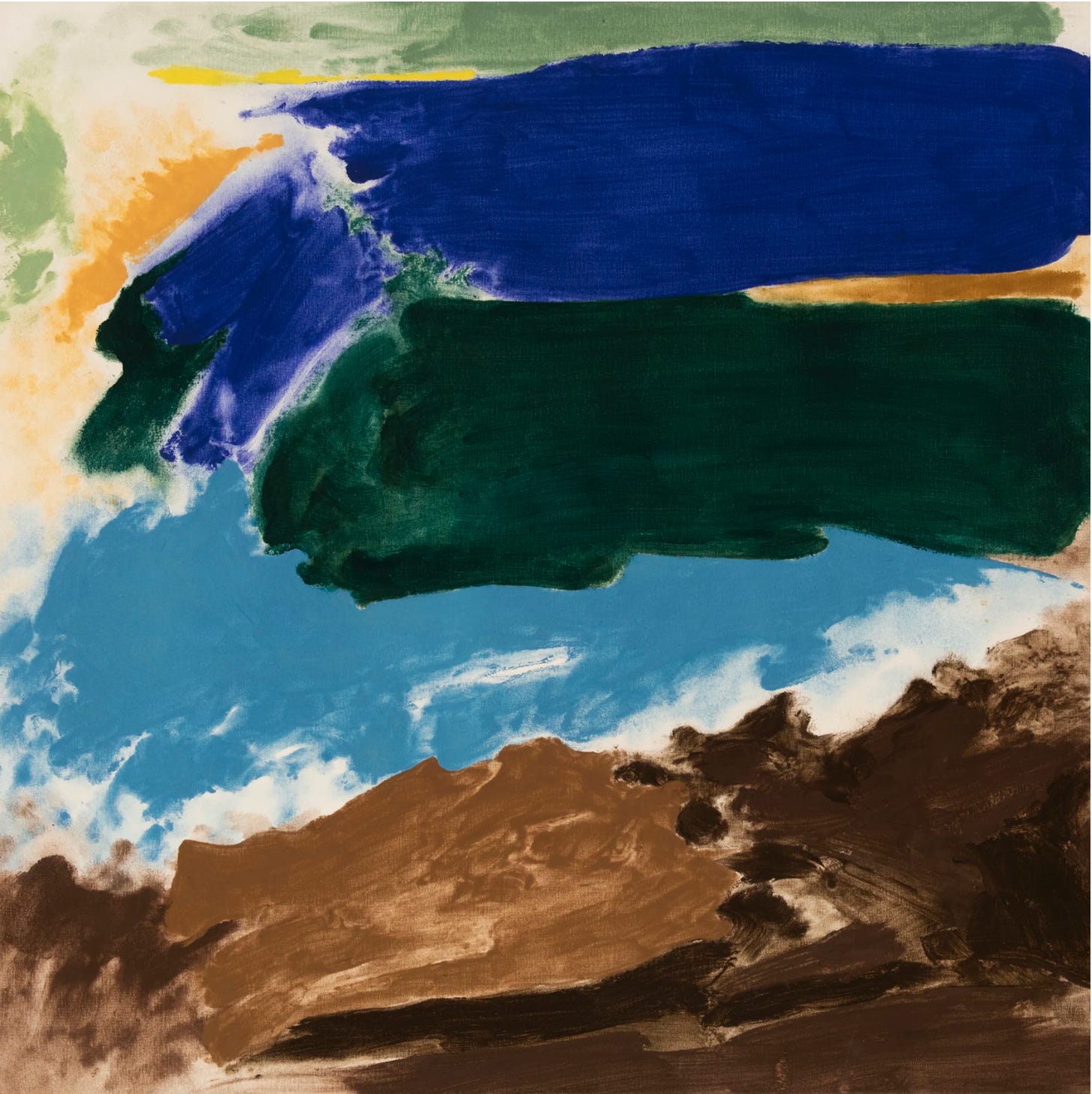
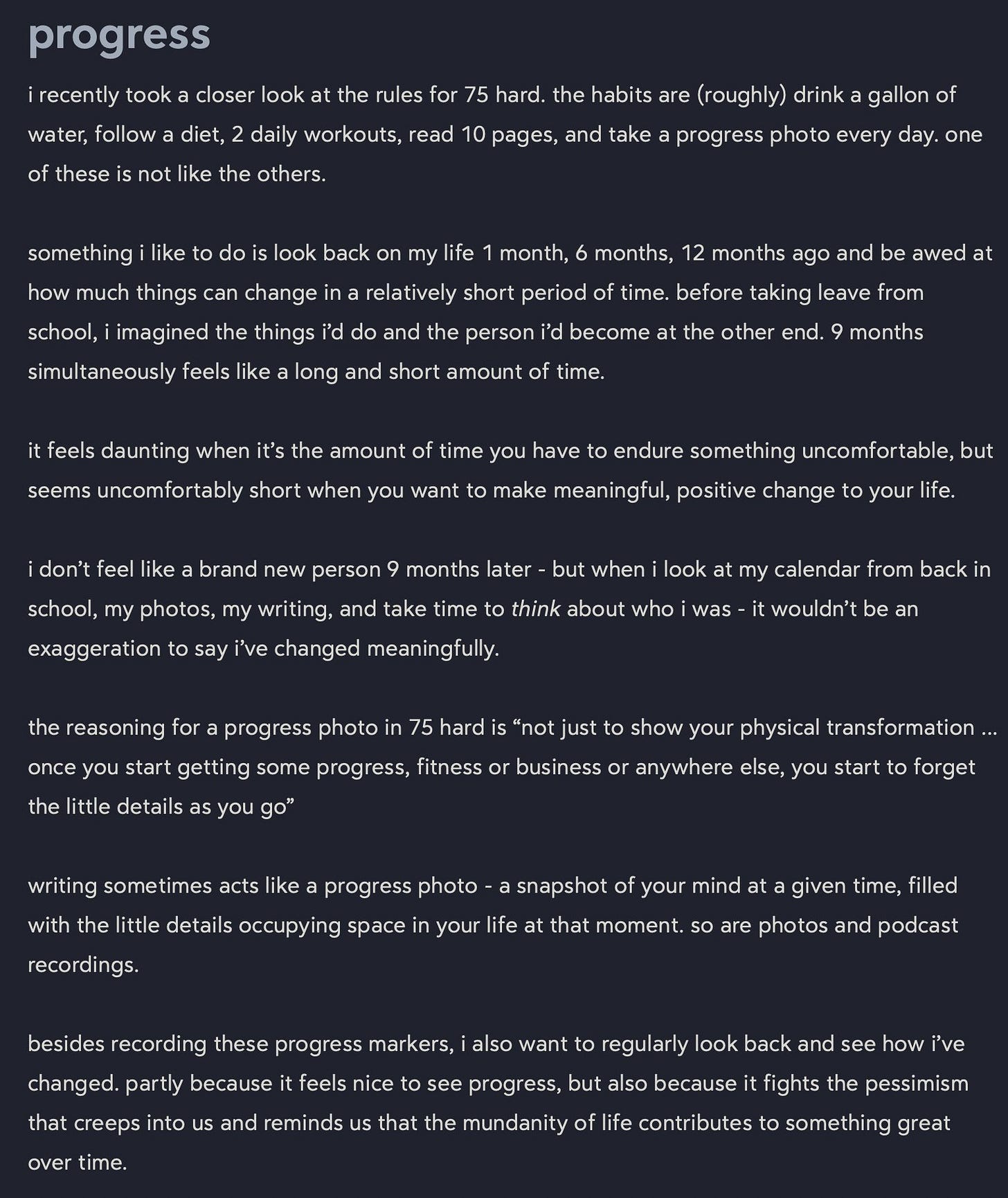
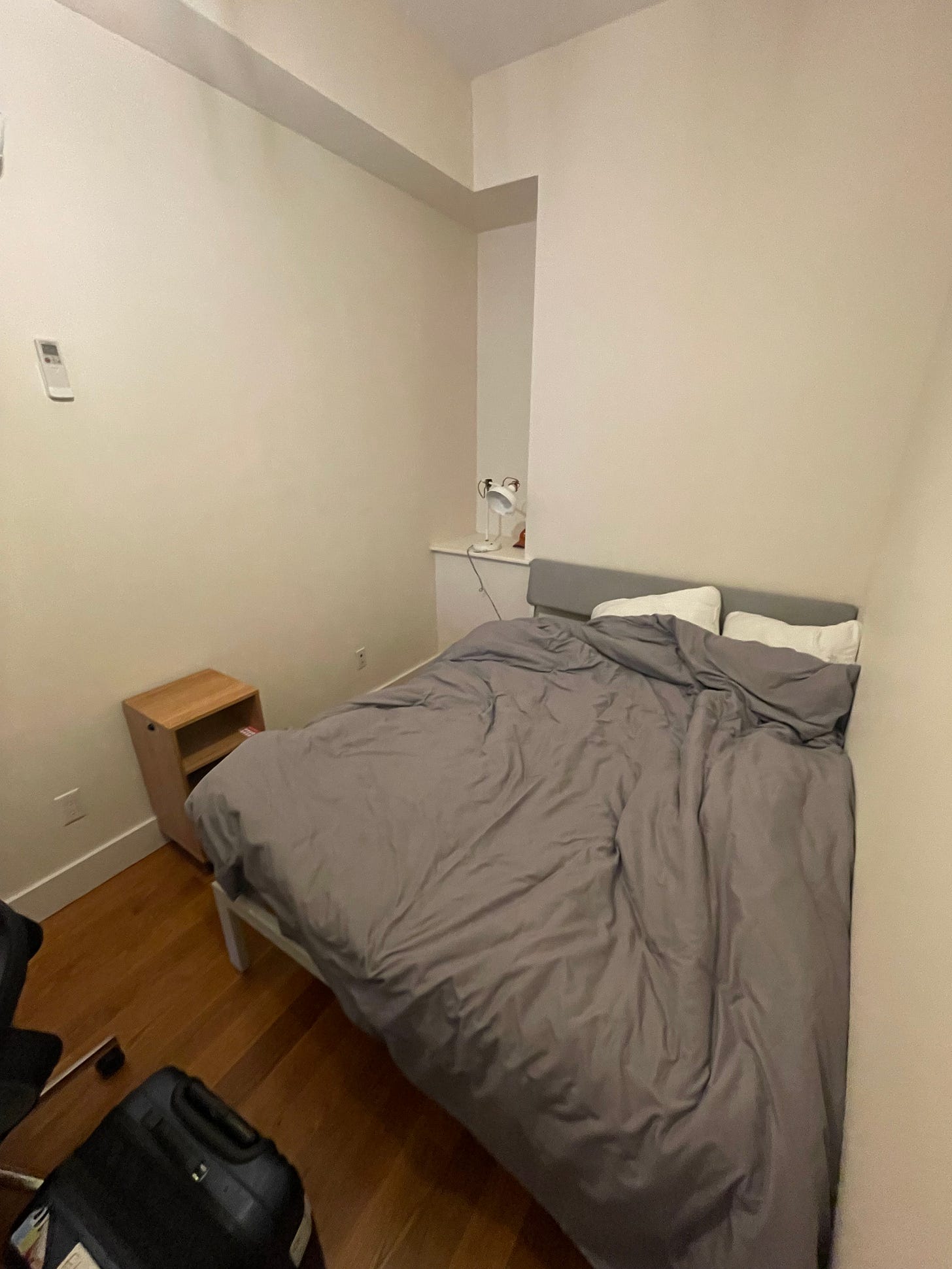
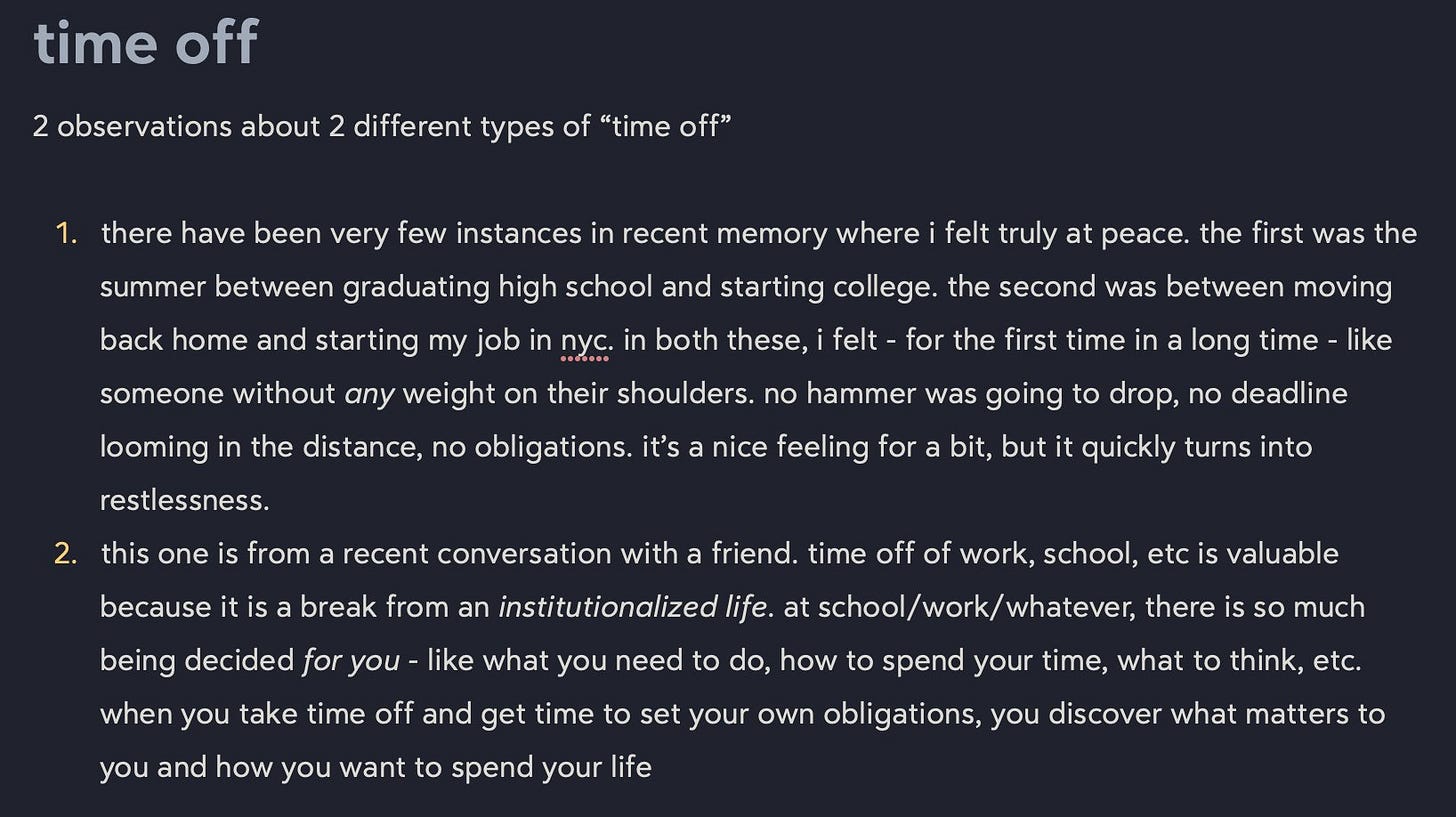
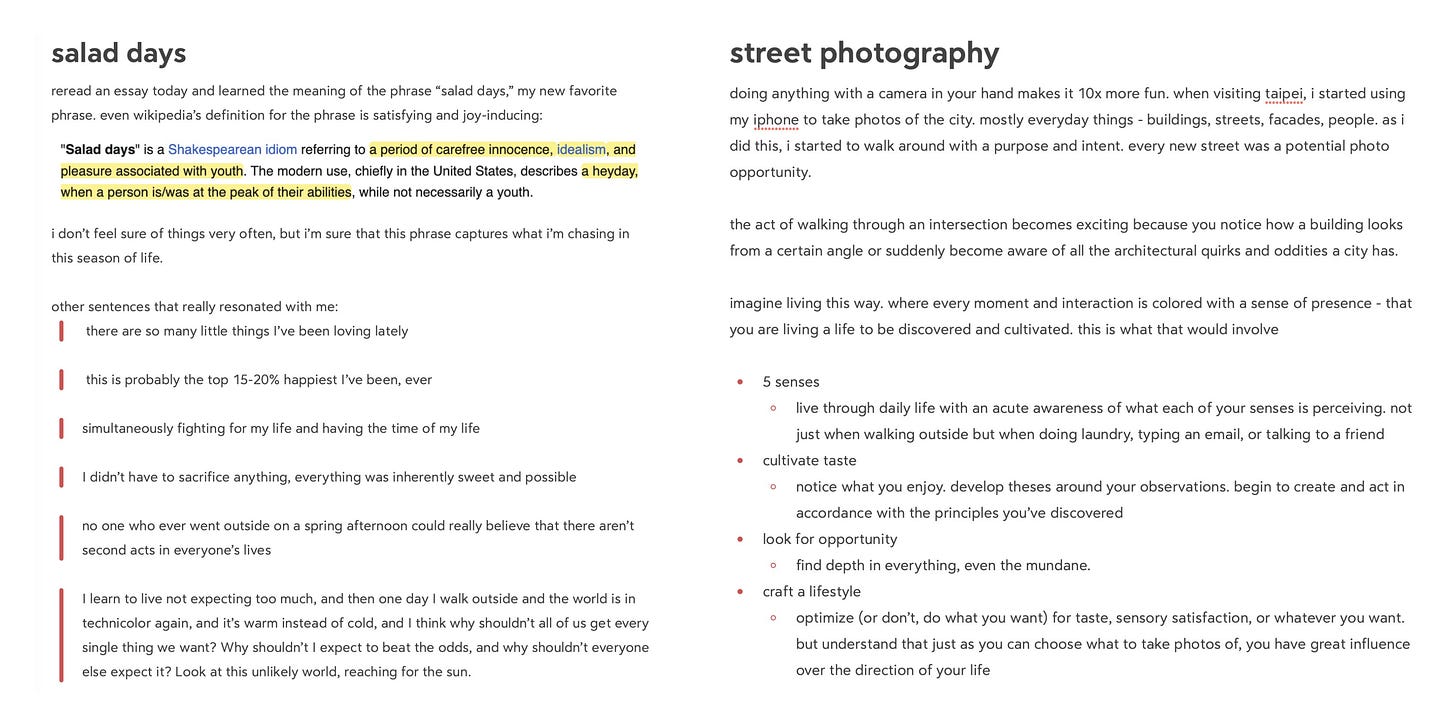
Great read